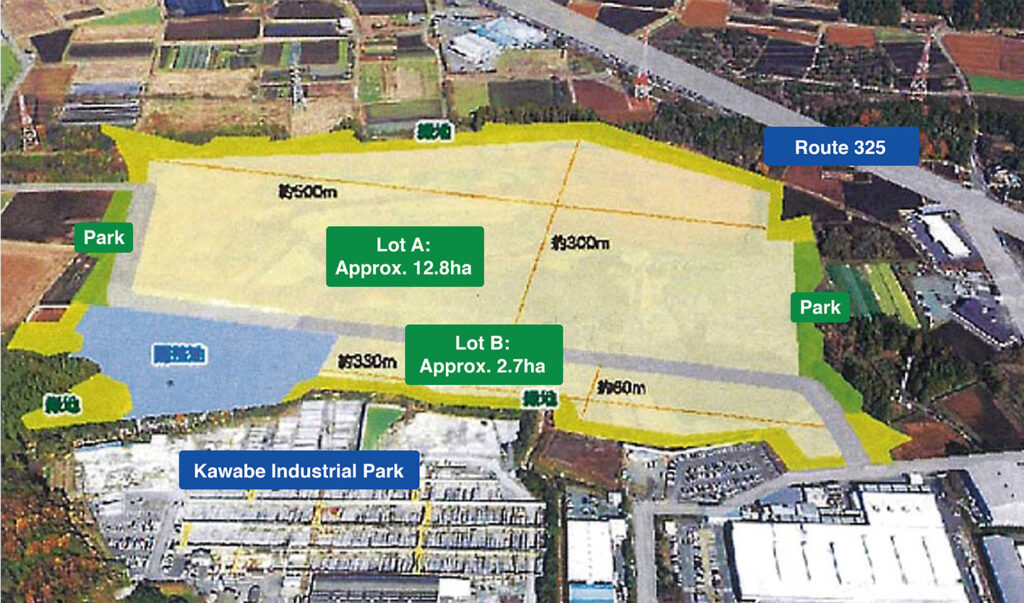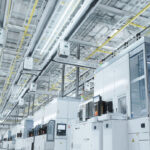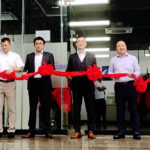ASIA ELECTRONICS INDUSTRYYOUR WINDOW TO SMART MANUFACTURING
Japanese Electronic Material Firms Ramp up Capacities
Electronic material manufacturers actively invest in plants and equipment to boost their production capacities. Specifically, this strategy aims to meet the increasing global demand for electronic materials in the medium to long term.
Active investments will continue globally, mainly directed to increase demand from key industries. Among them include electrified vehicles (xEVs), next-generation information technology (IT) terminals, advanced semiconductor processes, and carbon neutrality-related products.

Steady Growth
In 2021, the global demand for electronic materials increased steadily. In particular, this performance is buoyed by the economic recovery from the COVID pandemic. Overall, the demand increased steadily in 2022 as well.
More recently, the shift to xEVs and the progress of advanced driver-assistance systems (ADAS) and autonomous driving technologies pushed up the potential of electronic materials for automobiles. In addition, the full-fledged implementation of fifth-generation (5G) communications, advancement of semiconductor process technologies, and growing needs for decarbonization also contribute to the increase in demand for high-performance electronic materials.
Expansion of Sales
In their medium- and long-term plans, electronic material manufacturers laid out strategies for higher sales and profits.
Most recently, demand for electronic materials is somewhat sluggish. Factors like the slowdown of the Chinese economy, high inflation in the United States and countries in Europe, and the reversal of growth caused by the pandemic contributed to the slower demand.
However, for 2023, many electronic materials manufacturers laid out plans for capacity expansion. Some companies decide to build new plants and new factory buildings. Meanwhile, some manufacturers will install additional production lines in their existing plants.
Specifically, from the viewpoint of addressing business continuity plan (BCP) and strengthened investments in semiconductors in Japan, manufacturers actively bolster their production systems in Japan.
At the same time, electronic materials manufacturers have also been making active investments to build new and additional R&D centers.
Japanese Companies to Boost Production Capacities
Tokyo Ohka Kogyo Co., Ltd.
Tokyo Ohka Kogyo Co., Ltd. (TOK) plans to build a new plant in Kikuchi in Kumamoto Prefecture in Japan to produce high-purity chemical agents and other products. The new plant will commence construction in spring of 2023. The building is set for completion in the middle of 2024.
Particularly, with the new plant in place, TOK can swiftly keep up with the growth of the global semiconductor market in the future. At the same time, it will strengthen the company’s production base in Japan and contribute to lessening risk. The company also plans to bolster its production capacities of semiconductor photoresists at its Koriyama Plant in Koriyama, Fukushima Prefecture, and the Gotenba Plant in Gotenba, Shizuoka Prefecture, both in Japan.
RESONAC
RESONAC plans to build new factories and install production and evaluation equipment at the Yamazaki Plant in Hitachi, Ibaraki Prefecture, in Japan and in its Taiwanese subsidiary. Primarily, it aims to beef up the production capacity and evaluation function of chemical mechanical polishing (CMP) slurries for planarization of semiconductor circuits. The company is set to invest about 20 billion yen (US$154 million) in total. This will boost the group’s CMP slurry production capacity by about 20 percent.
Furthermore, the company will also make large-scale investments in plants and equipment totaling about 10 billion yen (US$77 million) to boost the production of copper-clad laminate substrates. Specifically, it will install production lines and equipment for copper-clad laminates for semiconductor package substrates at its Shimodate Plant in Chikusei, Ibaraki Prefecture in Japan, and in its Taiwanese subsidiary by 2025.
TAIYO NIPPON SANSO
Effective Jan. 1 this year, TAIYO NIPPON SANSO CORPORATION opened a business facility and established a logistics base for special gases in Kikuyomachi, Kumamoto Prefecture in Japan. This venture aims to strengthen its logistics business for special gases in the Kyushu district. Moreover, semiconductor-related companies are constructing new plants and strengthening facilities in Kumamoto Prefecture. Consequently, higher demand for high-purity special gases for semiconductor and liquid crystal manufacturing processes is expected.
For this reason, TAIYO NIPPON SANSO established the facility in Kumamoto Prefecture and relocated its logistics base. Also, it doubled the facility’s capacity to store special gas containers.
Toray Industries
For its part, Toray Industries, Inc. plans to boost the production capacity of Lumirror™ polyester release films for manufacturing multilayer ceramic capacitors (MLCCs) to 1.6-fold of its current production capacity. To this end, the company will upgrade its Gifu Plant in Godo-cho, in Gifu Prefecture in Japan. The new facilities will go online in 2025.
KURARAY
Meanwhile, KURARAY CO., Ltd. completed the construction of its new plant in Thailand for GENESTAR heat-resistant polyamide resin. The company plans to start commercial operations of the plant in Q1 (Jan. to Mar.) of FY2023. The Thai plant has an annual production capacity of 13,000 tons. The total production capacity for GENESTAR will become 26,000 tons annually.
Polyplastics
Polyplastics Co., Ltd. will construct a new polymerization plant of liquid crystal polymers (LCPs) at Polyplastics Taiwan Co., Ltd. (PTW) in Taipei. The new plant is slated to start operations in the first half of 2024 and will have a production capacity of 5,000 tons per year.




